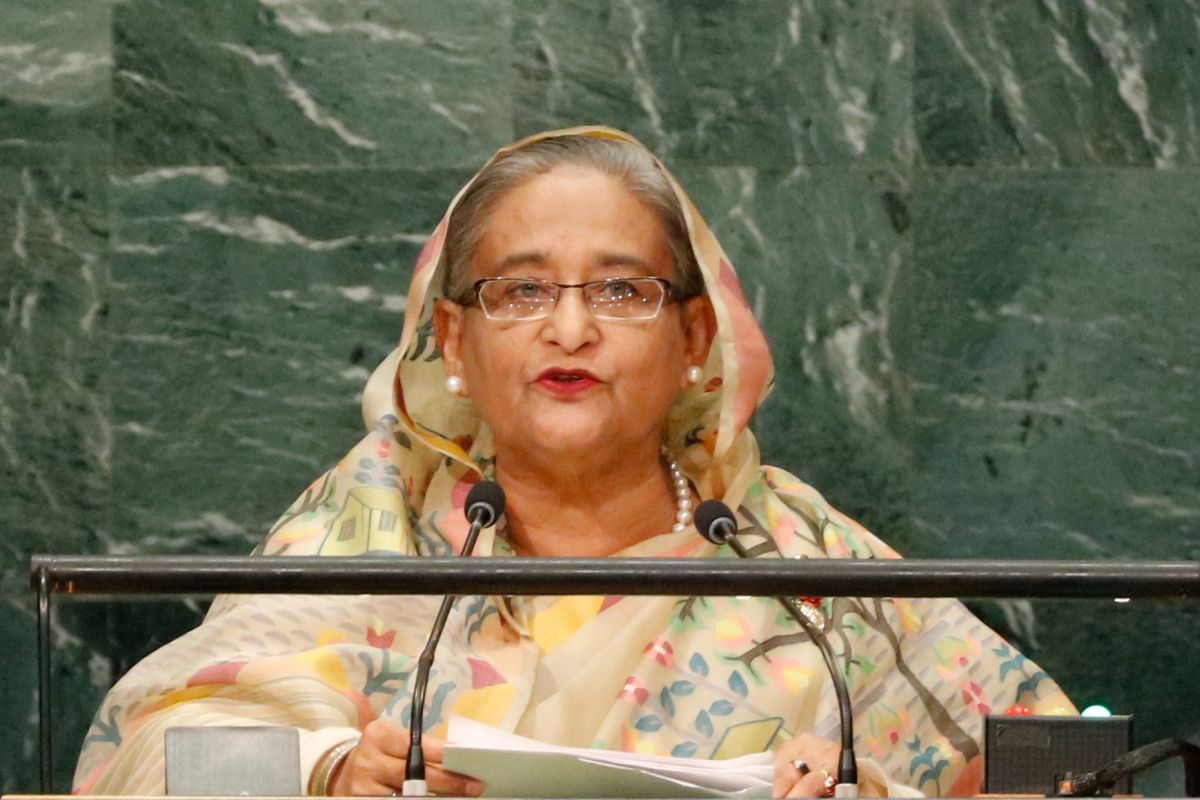Assam CM denies Chakma-Hajong relocation amid citizenship discussions
There are more than 67,000 Chakma and Hajong tribals residing in Arunachal Pradesh who are not eligible for permanent resident certificates or citizenship in the state.
The contentious CAA seeks to provide citizenship to Hindu, Sikh, Buddhist, Jain, Parsi and Christian communities who have faced religious persecution in Pakistan, Bangladesh, and Afghanistan and have arrived in India on or before December 31, 2014.

Bangladesh Prime Minister Sheikh Hasina. (File Photo: IANS)
Amid protests over the anti-CAA protests all over India, its neighbour Bangladesh has said that the Citizenship (Amendment) Act (CAA) is India’s “internal matter” but also termed it “unnecessary”. “We don’t understand why (India) did it. It was not necessary,” Bangladesh Prime Minister Sheikh Hasina told Gulf News in an interview.
“Bangladesh has always maintained that the CAA and the National Register of Citizens are internal matters of India. The Government of India, on their part, has also repeatedly maintained that the NRC is an internal exercise of India and Prime Minister Modi has in person assured me of the same during my visit to New Delhi in October 2019,” Hasina was quoted by the daily as saying.
Earlier, Bangladesh Foreign Minister AK Abdul Momen had also said that the CAA and the NRC are India’s “internal issues”. He, however, had also called the anti-CAA protests “worrisome”.
Advertisement
“We are India’s Number 1 friend. Indian government assured us again and again that these are their domestic issues; they are doing it because of legal and other reasons. But our fear is that if there is some uncertainty in India, it might affect its neighbours,” news agency PTI quoted Momen as saying.
Protests against CAA that were earlier confined to the northeast, had swept the country last month in December after several protesters, including students clashed with the police in Delhi’s Jamia Milia Islamia on December 15, 2019, which later spread to AMU and JNU. People in UP, Delhi, West Bengal, Kerala and everywhere else took part in the protests.
The contentious CAA seeks to provide citizenship to Hindu, Sikh, Buddhist, Jain, Parsi and Christian communities who have faced religious persecution in Pakistan, Bangladesh, and Afghanistan and have arrived in India on or before December 31, 2014.
Meanwhile, the Union Cabinet chaired by Prime Minister Narendra Modi on December 24, 2019, approved Rs 8,500 crore for updating the National Population Register (NPR), which is said to be the first step in implementing the National Register of Citizens (NRC).
The Government has been preparing for the National Population Register (NPR) amid the ongoing protests over the Citizenship Amendment Act (CAA) and National Register of Citizens (NRC).
Under the NPR, a census will be conducted from house to house across the country from April 1, 2020, to September 30, 2020, in all the states/union territories, except Assam. Its aim is to create a database of the comprehensive identity of common residents of the country. This data will also contain biometric information along with demographics.
The NPR is a list of “usual residents” of the country. A “usual resident” is defined for the purposes of NPR as a person who has resided in a local area for the past six months or more or a person who intends to reside in that area for the next six months or more.
Advertisement